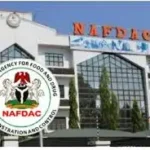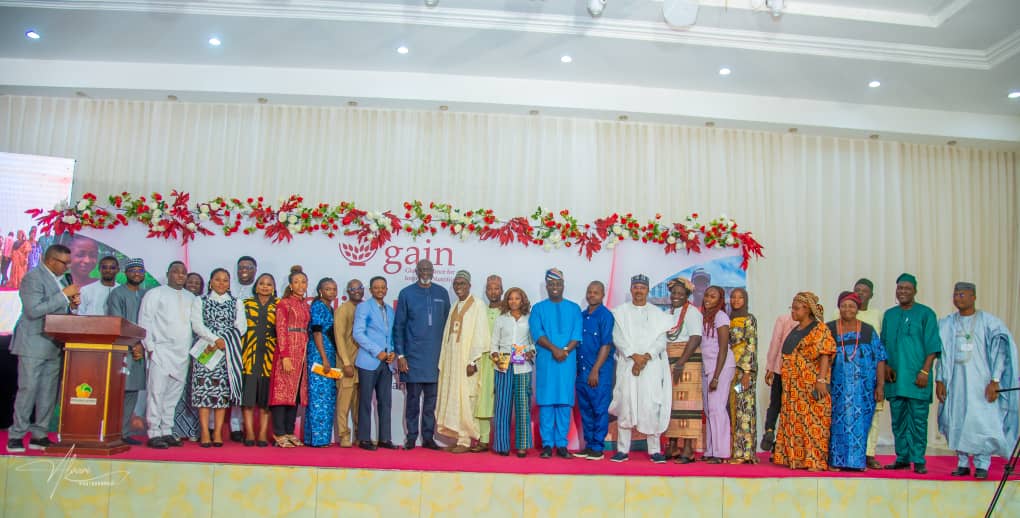By Justina Auta
The Global Alliance for Improved Nutrition (GAIN), an NGO, has invested 10 million dollars in working with farmers to produce nutritious biofortified cassava, maize, rice and other staples to tackle vitamin A deficiency in four states across the nation.
Dr Michael Ojo, Country Director of GAIN, stated this at the Close-Out Ceremony of the Strengthening Nutrition in Priority Staples (SNiPS), a five-year project, in Abuja.
The project was implemented by GAIN in partnership with GIZ and the Green Innovation Centre for Agricultural and Food Sector in Kaduna, Oyo, Nasarawa and Benue States.
Ojo explained that the fund was used under the SNiPS project, which began in 2021, to address the nutrition crisis and reliance on staple crops that provided insufficient micronutrients, especially vitamin A, particularly among children and women.
“At the same time, farmers struggled with low yields and limited access to improved planting materials.
“Processors found it difficult to access raw materials, faced barriers to product approval, and consumers often lacked awareness of healthier choices available to them.
“SNiPS was born to bridge these gaps, to ensure that the foods Nigerians eat every day become vehicles for better nutrition, stronger livelihoods and greater resilience,” he said.
He revealed that over the five-year project period, 9,633 farmers adopted vitamin A maize, vitamin A cassava and orange-fleshed sweet potato, collectively producing over 41.6 million kilograms of nutrient-rich crops.
Also, 978 farmers were trained in community-based seed multiplication; 625 MSMEs are processing and marketing biofortified foods; and 32 MSMEs expanded their operations through microgrants of between N2million and N4million
Others, he noted, included 30 businesses that received regulatory approvals, and more than 40,000 people reached through Social and Behaviour Change Communication.
He noted challenges such as limited farmer access to financing, unpredictable weather patterns that affected yields, and initial resistance from consumers unfamiliar with biofortified varieties.
He emphasised the need for biofortification of essential staples with deficient micronutrients to ensure food and nutrition security, as well as sustainable social and economic development in Nigeria.
The country director, therefore, urged the government and other stakeholders to institutionalise biofortification in agricultural, nutrition and school feeding policies.
He also called for increased investments in nutrient-enriched value chains and support for initiatives that integrate nutrition, climate resilience and livelihood strengthening.
“Our journey was not without challenges. We confronted limited farmer access to financing, unpredictable weather patterns that affected yields, and initial resistance from consumers unfamiliar with biofortified varieties.
“Other challenges include observance of regulatory processes and slow market entry for small businesses,” he said.
Sen. Abubakar Kyari, Minister of Agriculture and Food Security, while reaffirming government’s commitment to ensuring that similar initiatives cascade to other states, highlighted the need to boost food security.
Kyari, represented by Mr Nuhu Kilishi, Director, Nutrition and Food Safety in the ministry, noted that the SNiPS project had enhanced the nutritional value of staple crops in Nigeria, ultimately contributing to improved food security and nutrition outcomes.
“The current data and indices on nutrition speak volumes for us to double up our efforts and call for scaling up of impactful projects like this.
“Let us continue to work together to ensure that our staple crops are not only abundant but also nutritious, for a healthier and more prosperous Nigeria.”
Prof. Mojisola Adeyeye, the Director-General, National Agency for Food and Drug Administration and Control (NAFDAC), reaffirmed the agency’s commitment to scaling up fortification coverage.
The NAFDAC boss also reiterated the agency’s measure to strengthen food safety systems and supporting Nigerian manufacturers to comply with standards that protect public health.
Adeyeye, represented by Hajiya Ummulkhairi Ahmed-Bobboi, Deputy Director, Food Safety and Applied Nutrition, NAFDAC, said: “Together, we have advanced national efforts in food fortification, food safety, market-based nutrition and regulatory system strengthening.”
Similarly, Prof. Charles Anosike, Director-General, Nigeria Meteorological Agency, reiterated the agency’s commitment to providing timely, accurate and actionable weather information for better farm yields.
“We recognise that empowering farmers with reliable forecasts and agro-meteorological advisories enables them to make informed decisions — when to plant, when to harvest, and how to protect their crops from adverse weather events.
“This, in turn, supports their yields, reduces losses and ensures that the staples reaching our tables are both abundant and nutritious,” he said.
Alhaji Mohammed Murtala-Dabo, Kaduna State Commissioner for Agriculture, reaffirmed the state’s commitment to prioritising agriculture and nutrition.
Represented by the Permanent Secretary, Abubakar Umar, the commissioner expressed the state’s commitment to improving access to healthy, biofortified and nutritious food.
Similarly, Mr Dav Raphael, Desk Officer, SNiPS project in Benue State, expressed appreciation to the organisation for its support in increasing the availability and consumption of nutrient-rich staple foods.
Raphael, while pledging to sustain the project’s initiatives, appealed to other partners and the Federal Government to initiate projects that will improve food security and nutrition in the state and across the country.
Meanwhile, some beneficiaries of the SNiPS grants shared their success stories.
They expressed appreciation to the organisation, assuring it of their commitment to boosting nutrient-rich staple foods and food security. (NAN)(www.nannews.ng)
Edited by Isaac Aregbesola












